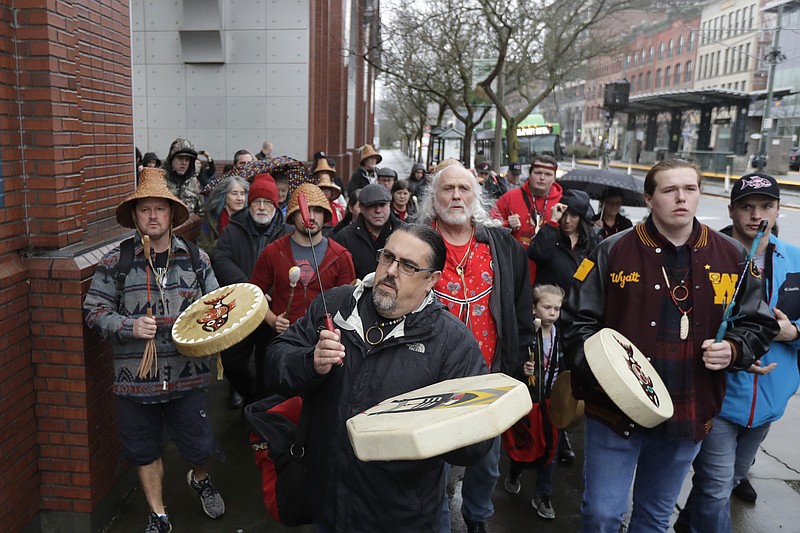Unlike federally recognized tribes, the Chinook Nation doesn't have a political relationship with the United States, which would make it eligible for federal coronavirus relief funding for state, local and tribal governments.
Hundreds of tribes lack the designation, which they say leaves them struggling to help their members and less equipped to combat a pandemic that's disproportionately affected Americans Indians and other people of color.
The 574 federally recognized tribes shared $8 billion from the coronavirus relief package approved last March. They have used the money to provide meals, personal protective equipment, cleaning supplies, covid-19 testing, business support, housing relief and more. Another bill that passed in December gives those tribes another year to spend the money and includes additional funding for federally recognized tribes.
The Chinook Nation -- consisting of the Lower Chinook, Clatsop, Willapa, Wahkiakum and Kathlamet tribes -- received some federal funding through a local nonprofit to distribute food to elders and help with electricity bills, tribal council chairman Tony A. "Naschio" Johnson said. But even paired with grants, he said it's a drop in the bucket.
[CORONAVIRUS: Click here for our complete coverage » arkansasonline.com/coronavirus]
The path to federal recognition is long, complicated and expensive, requiring deep anthropological and genealogical research and extensive documentation proving that the tribe is distinct from others and has continuously operated since the 1900s. The process can cost millions of dollars.
The Chinook Nation's quest for federal recognition started with hiring lawyers to fight for land rights in 1899. The tribe was recognized in 2001, but the status was revoked 18 months later after the U.S. Bureau of Indian Affairs ruled that it failed to prove it had consistently existed as a tribe through history. They're still battling for the status and got a boost from a U.S. judge who ruled about a year ago that a ban on the tribe reapplying for federal recognition was unjustified.
Meanwhile, the Fernandeno Tataviam Band of Mission Indians, a tribe in Los Angeles County without a land base, has raised $2.6 million to build a case.
The tribe's 900 members are facing job losses and food insecurity, tribal President Rudy Ortega said.
The problems are not unlike what federally recognized tribes and others are facing in the pandemic, he said, but his tribe has additional roadblocks to financial help. Grant funding has helped, but applying for the money has become more arduous after 10 tribal government employees were laid off, Ortega said.
The tribe is recognized by California, but that doesn't guarantee government funding. While it can open access to state funding, state recognition is mostly seen as a stepping stone to federal recognition.
In the meantime, the tribe's leaders are asking members for help delivering food and donating money. Other than that, much of the tribe's funding comes from grants and an online store.
Likewise, efforts within the Chinook Nation to combat the pandemic haven't gone far enough, tribal leaders say. While they have taken strict covid-19 precautions, including canceling big events and encouraging people to socially distance, there was little to prepare the tribe for the economic effects.
Johnson said what they need most is federal status and funding, which members have been fighting for through letter-writing efforts and social media campaigns.
"With federal recognition, that's how we're going to change the future of our community," he said.
Information for this article was contributed by Felicia Fonseca of The Associated Press.


